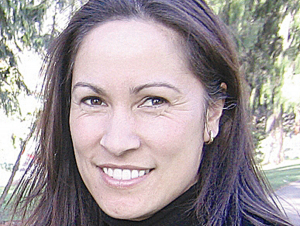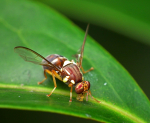The whole horticultural sector has been affected by Cyclone Gabrielle, with words such devastation and almost dystopian being used.
As the response phase moves towards recovery, work is underway with the Ministry for Primary Industries (MPI) to provide a robust assessment to Government of the short and long impacts. Horticulture New Zealand’s chief executive, Nadine Tunley, says the second would be hard to estimate.
“In some cases, the land may never be grown on again or it will take several years to for it to return to a stage where trees, vines and vegetables can be replanted and grown,” she told Rural News.
Some Hawke’s Bay pipfruit orchardists were still unable to get back on their properties over a week after the cyclone hit while others were yet to determine what was salvageable.
“But in some areas, it’s business as usual and they’re spraying and picking,” says Richard Punter, chair of New Zealand Apple and Pears Incorporated (NZAPI).
Mapping software was being used to check off all orchards before an accurate estimation of damages could be made. He welcomed the Government’s initial support package as a “very good first step” but the industry hoped that would be followed quickly by a Covid-style wage support scheme.
“You can’t salvage an orchard with $40,000.”
While silt could be scooped up and taken away the debris made up of piles of trees, netting and irrigation fittings presented more of a challenge. Pressure was being applied for relaxation of rules around where Recognised Seasonal Employer (RSE) workers needed to be and what they do – “it’s just commonsense”.
Gareth Edgecombe, chief executive of T&G Global, says while there was some flooding in its apple orchards and those of its partner growers, with power back on at its Whakatu postharvest facility, Royal Gala apples could continue to be packed for export.
New Zealand Kiwifruit Growers Incorporated (NZKGI) is estimating there’s moderate to significant damage to 70% of producing orchards in Hawke’s Bay, which make up 1.5% of total production.
For neighbouring Gisborne, where 4% of total production is grown the level of damage is expected to be 25%. There’s also some localised damage in other growing areas with the worst seen in the Bay of Plenty, Northland and Coromandel. NZKGI is using its Grower Relief Fund to provide disaster relief for the repair and restoration of kiwifruit orchards which have suffered damage.
Zespri chief executive, Dan Mathieson, who visited the affected areas with industry representatives last week, says it’s clear there’s a lot of hard work ahead to recover. But its focus on food safety had to remain absolute. Fruit that had had direct contact with flood water wouldn’t be harvested but options were being worked on to maintain food safety when it came to fruit from affected orchards which hadn’t been directly in contact with flood waters.
Citrus growers have suffered the full range of damage to their orchards, but it could take several weeks to find out the scale of the impact on the sector.
“Some are not affected at all, some lightly and some heavily,” says Peter Ensor, the executive manager of Citrus NZ.



















